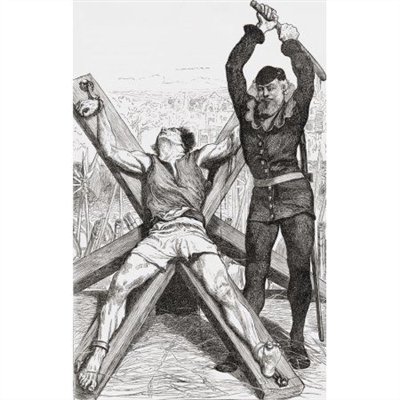Three are talking about the theater: a “Slav”, cut off in a circle, “European”, “not cut at all”, and a young man standing outside the parties, cut off under the comb (like Herzen), who offers a topic for discussion: why there are no good people in Russia Actresses That there are no good actresses, everyone agrees, but everyone explains this according to his own doctrine: the Slavic man speaks of the patriarchal modesty of a Russian woman, the European man speaks of the emotional underdevelopment of the Russians, and the reasons are not clear for the cut-off. After everyone has had time to speak out, a new character appears - a man of art and refutes theoretical calculations by example: he saw a great Russian actress, moreover, which surprises everyone, not in Moscow or St. Petersburg, but in a small provincial city. The artist’s story follows (his prototype is M. S. Shchepkin, to whom the story is dedicated).
Once in his youth (at the beginning of the 19th century), he came to the city of N, hoping to enter the theater of the wealthy Prince Skalinsky. Talking about the first performance seen in the Skalinsky Theater, the artist almost echoes the “European”, although he shifts the emphasis in a significant way:
"There was something tense, unnatural in the way the courtyard people <...> represented Lords and princesses." The heroine appears on the stage in the second performance - in the French melodrama "The Thief-Thief" she plays the handmaid Aneta, who is unfairly accused of theft, and here in the game of the serf actress the narrator sees "that incomprehensible pride that develops on the verge of humiliation." The depraved judge offers her "a loss of honor to buy freedom." The performance, “deep irony of the face” of the heroine especially amazes the observer; he also notices the prince's unusual excitement. The play has a happy ending - it is revealed that the girl is innocent and the thief is forty, but the actress in the finale plays a creature mortally exhausted.
Spectators do not call the actress and resent the shocked and almost in love storyteller with vulgar remarks. Behind the scenes, where he rushed to tell her about his admiration, they explain to him that she can only be seen with the permission of the prince. The next morning, the narrator sets off for permission and, in the prince’s office, meets, by the way, the artist, the third day of the playing lord, almost in a straitjacket. The prince is kind to the narrator, because he wants to get him into his troupe, and explains the strict order in the theater by the excessive arrogance of artists who are accustomed on stage to the role of nobles.
"Aneta" meets his fellow art as a native person and confesses to him. To the narrator, she seems to be a “statue of graceful suffering," he almost admires how she "gracefully dies."
The landowner to whom she belonged from birth, having seen abilities in her, provided all the opportunities to develop them and treated her as free; he died suddenly, and he did not take care to prescribe leave for his artists in advance; they were sold at a public auction to the prince.
The prince began to harass the heroine, she dodged; finally, an explanation occurred (the heroine had read Schiller’s Cunning and Love aloud), and the offended prince said: “You are my serf girl, not an actress.” These words acted on her so that she was soon in consumption.
The prince, without resorting to brutal violence, pettyly molested the heroine: took away the best roles, etc. Two months before meeting the storyteller, they did not let her out of the yard to the shops and insulted her, assuming that she was in a hurry for her lovers. The insult was intentional: her behavior was impeccable. “So it is to save our honor that you lock us up?” Well, prince, here’s my hand, my honest word, that closer to the year I will prove to you that the measures you have chosen are not enough! ”
In this novel, the heroines, in all likelihood, the first and the last, did not have love, but only despair; she almost didn’t tell anything about him. She became pregnant, most of all she was tormented by the fact that the child was born a serf; she only hopes for a quick death of her and her child by the grace of God.
The narrator leaves in tears, and, having found the prince’s offer to join him in the company on favorable terms, he leaves the city, leaving the invitation unanswered. After he finds out that Aneta died two months after giving birth.
Excited listeners are silent; the author compares them with the “beautiful tombstone group” of the heroine. “That's right,” the Slav said, rising, “but why didn't she get married secretly? ..”












